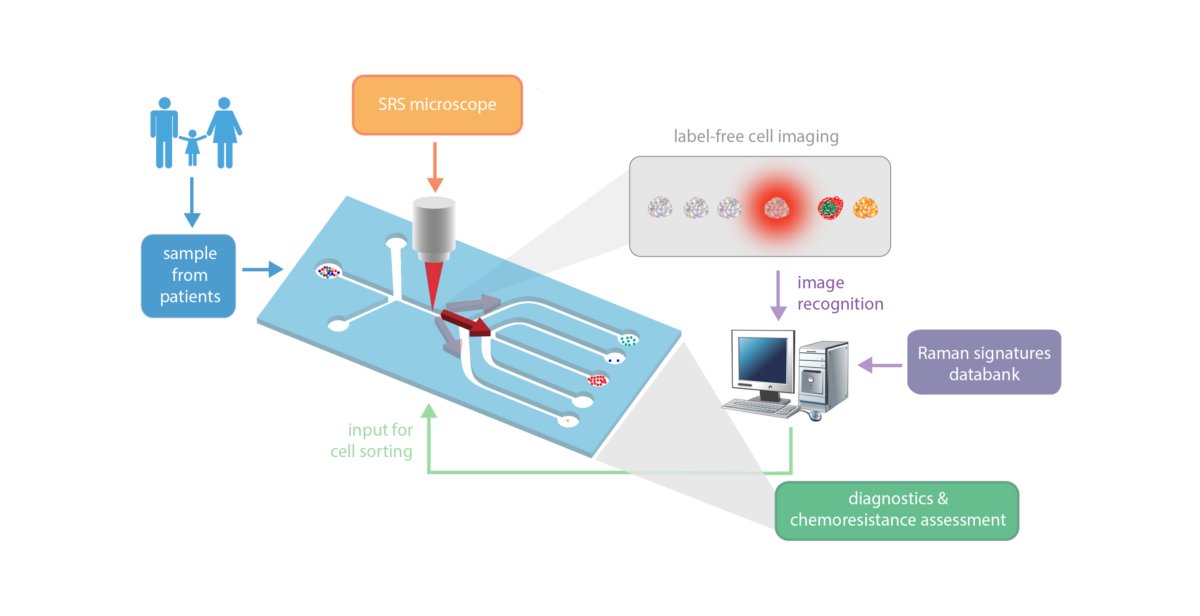We aim to develop the first Stimulated Raman Spectroscopy (SRS) microfluidic system for non-invasive imaging of live leukemic cells and apply it to rapid diagnostics and assessment of chemosensitivity in vitro.
We want to facilitate and accelerate the diagnostics of leukemia, and to make it more efficient
– Prof. Czesław Radzewicz, Faculty of Physics, University of Warsaw
Currently, the diagnosis of leukemias is based on genetic, immunophenotypic, histochemical/histopathological and molecular techniques. The diagnostic work-up thus requires multidisciplinary and experienced team and involves considerable instrumentation/material costs. For the same reasons, in non-reference institutions the diagnosis of specific molecular subtype of leukemia is often delayed.
The easy-to-standardize microfluidic device assisting clinicians in early differential diagnosis, providing objective results and prognostic information from a single-tube assay, without the need to use antibody stains, would greatly facilitate clinical decision making and decrease the cost of diagnostic and follow-up procedures.
Moreover, detecting chemoresistance of leukemic cells to standard cytostatic agents and potential sensitivity to targeted drugs by SRS device would enable identification of patients who may benefit from individualized treatment approach.
The newly developed diagnostic instrument – RapID – will fill the gap in the current diagnostic methodology of leukemia.
The research and development is conducted by a network of six interdisciplinary teams from top scientific institutions in Poland.

